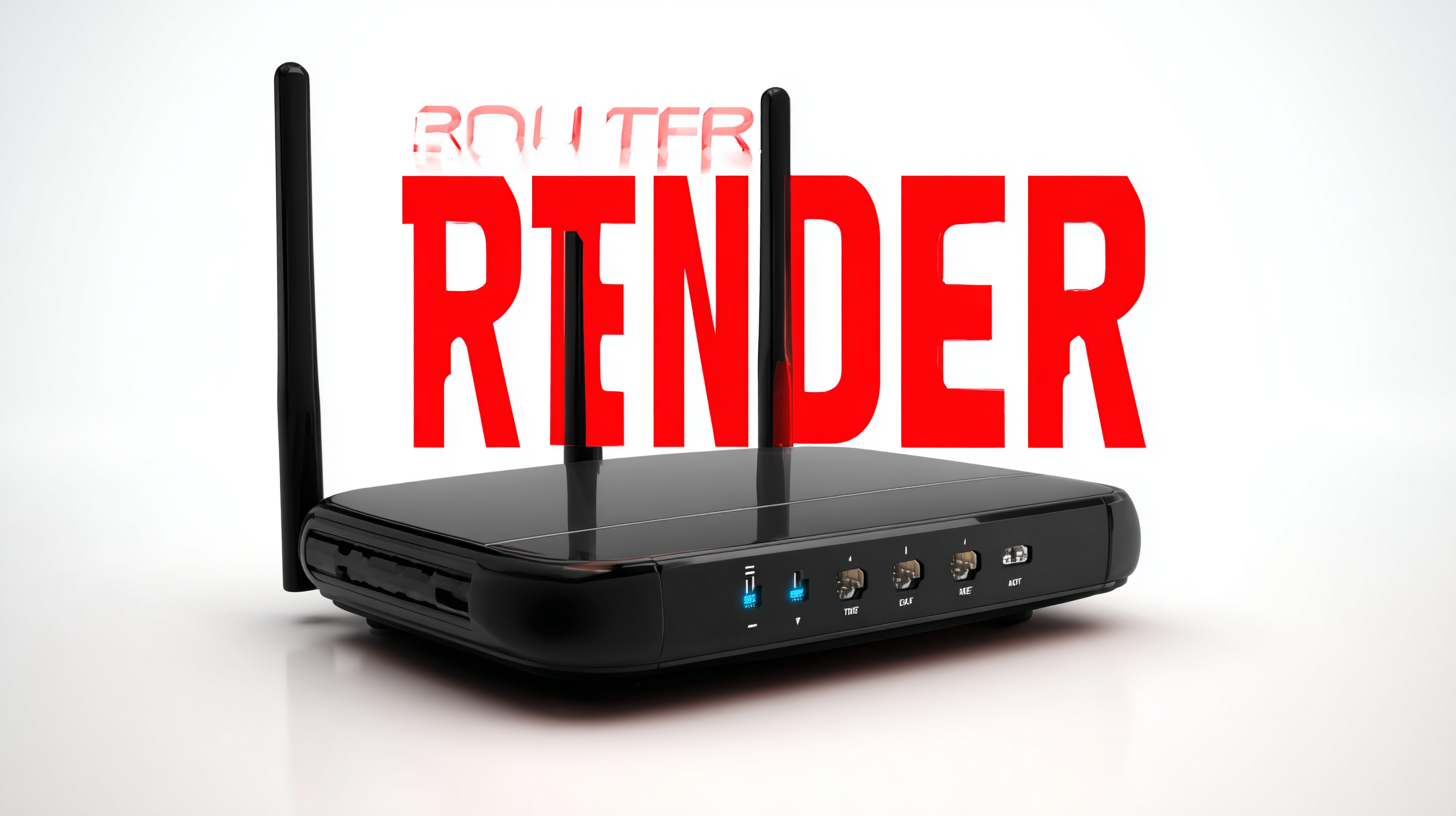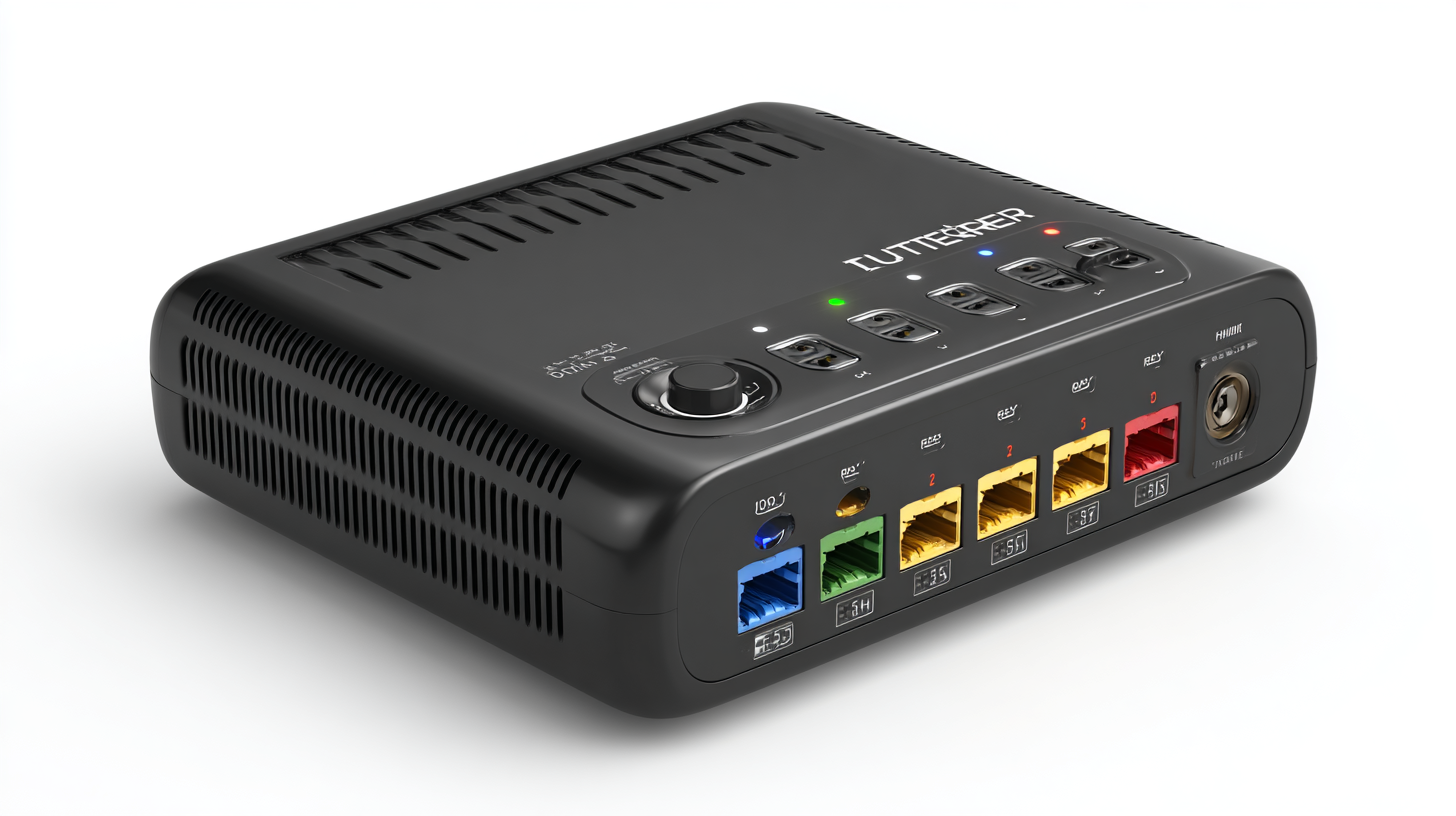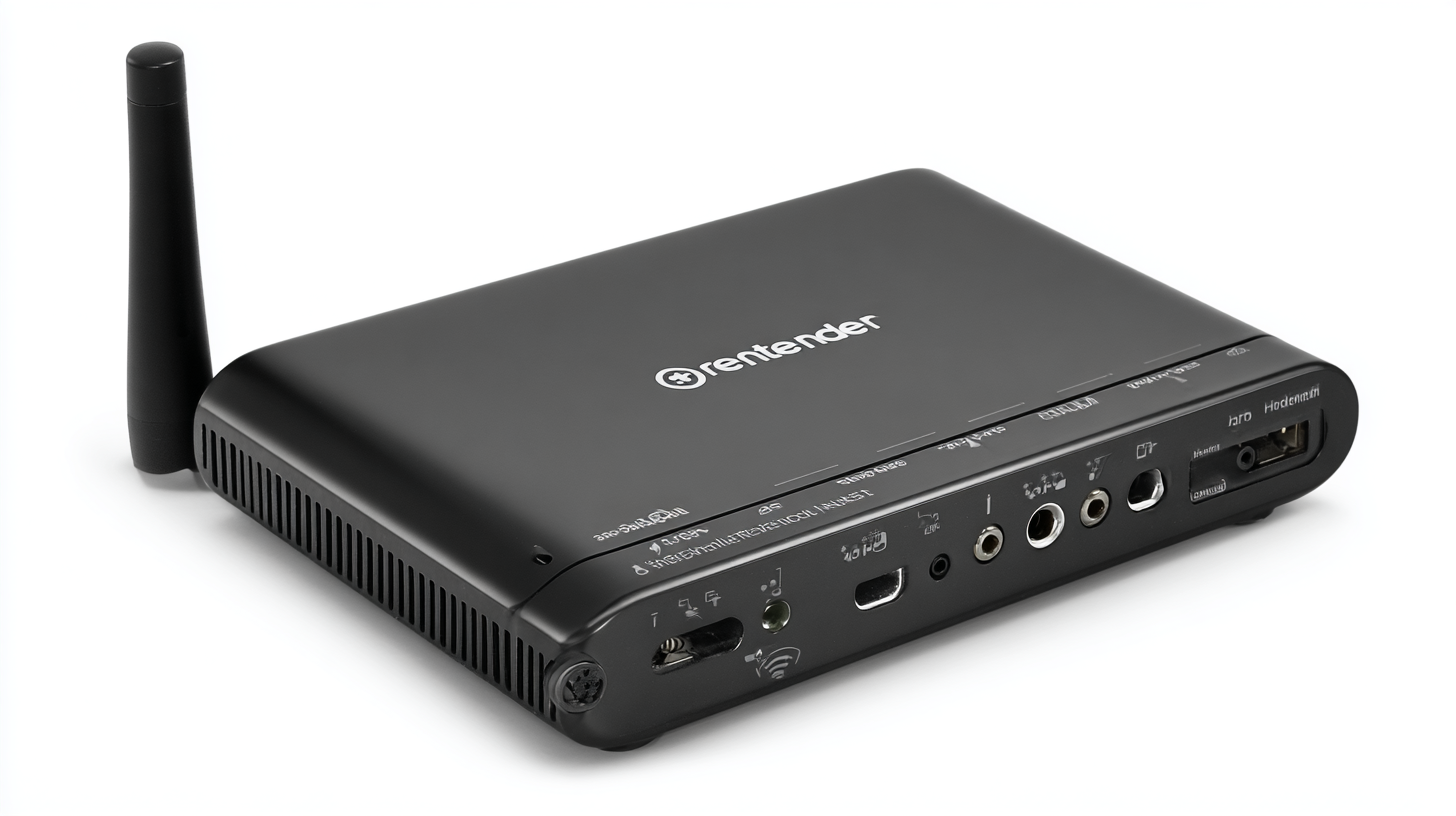In today's hyper-connected world, the demand for seamless internet access is greater than ever, making Router Extenders a crucial component for enhancing Wi-Fi coverage in both residential and commercial spaces. According to a report by Statista, the global market for Wi-Fi extenders is anticipated to reach over $5 billion by 2025, reflecting the growing necessity for robust internet solutions as remote work and online activities continue to thrive. Moreover, a recent survey by the Wireless Broadband Alliance found that 70% of users have experienced significant improvements in their network reliability after integrating Router Extenders into their setups. As we delve into the features and applications of the best Router Extenders available today, we aim to equip you with essential insights tailored to meet various connectivity needs, ensuring that every corner of your home or office is effortlessly connected.

When selecting the best router extenders for varying needs, understanding their key features is essential. A recent report from the Consumer Technology Association highlights that 75% of U.S. households use Wi-Fi, emphasizing the necessity for effective connectivity solutions. The best router extenders often include dual-band support, which enables them to handle multiple devices simultaneously without significant latency. Additionally, they may feature advanced technologies like beamforming, allowing for improved signal strength directed specifically towards connected devices.
Tip: Consider the size of the area you need to cover when choosing a router extender. Models designed for larger homes typically come with higher power output and can serve multiple floors.
Another essential feature to look out for is compatibility with your existing network. As per a study by Statista, nearly 60% of users encountered issues with device compatibility when using third-party extenders. Ensuring that the extender supports the same standards as your router, such as Wi-Fi 6, could significantly enhance your network’s performance, providing faster speeds and reduced congestion.
Tip: Before purchasing, review whether an extender has Ethernet ports, which can be beneficial for connecting stationary devices like gaming consoles or smart TVs directly to the network for optimal performance.
In the ever-evolving landscape of technology, the influence of Chinese manufacturing on global sales of router extenders cannot be overlooked. The recent surge in demand for Wi-Fi range extenders aligns with a broader trend within China's manufacturing sector, characterized by innovation and cost-effective production. With the global Wi-Fi range extender market projected to reach over $3 billion by 2030, manufacturers in China are at the forefront, delivering products that cater to a variety of consumer needs, from home networking to enterprise solutions.
However, the increase in Chinese-made tech products, including router extenders, raises questions about security and market dynamics. Reports of investigations into pricing practices and potential bans on certain products due to hacking concerns highlight the complexity of navigating the consumer electronics market. As manufacturers strive to balance competitiveness and quality assurance, consumers are left to weigh the benefits against potential risks. The intersection of manufacturing efficiency and market trust continues to shape the router extender landscape, making it imperative to stay informed about both performance and product integrity.

When looking for a reliable router extender, quality assurance is paramount. According to a report by IDC, nearly 60% of consumers experience dead zones in their homes, making a robust router extender essential for seamless internet access. Key features to inspect include signal strength, bandwidth capacity, and ease of installation. Select models that support the latest Wi-Fi standards, such as Wi-Fi 6, which can accommodate multiple devices without sacrificing performance.
**Tip:** Always check for the range of the extender relative to your home size. A unit with a range exceeding your square footage helps ensure you eliminate dead spots effectively.
Durability is another crucial factor. A survey by Statista indicates that 45% of users abandon their extenders due to poor performance or reliability. Look for extenders with a reputable warranty and customer reviews that highlight long-term satisfaction. Prioritizing brands that offer solid customer service and firmware updates will ensure your device remains functional and secure.
**Tip:** Consider extenders with advanced security features like WPA3, which is becoming a standard for protecting your home network against unauthorized access.
| Feature | Importance | Typical Range | Speed Requirements | Best For |
|---|---|---|---|---|
| Wireless Standards (e.g., 802.11ac) | Ensures compatibility and performance | Up to 1200 ft | Up to 1200 Mbps | Large Homes |
| Dual-Band Support | Improves speed and reduces interference | Up to 800 ft | Up to 300 Mbps (2.4GHz), 867 Mbps (5GHz) | Gaming & Streaming |
| Ethernet Ports | Provides wired connection options | Varies | N/A | Homes with multiple devices |
| Easy Setup and Management | User-friendly experience | N/A | N/A | Non-tech Savvy Users |
| Security Features (e.g., WPA3) | Protects against unauthorized access | N/A | N/A | Secure Home Networks |
 Router extenders play a crucial role in enhancing Wi-Fi coverage, making them essential for various practical applications in everyday life. For instance, in a large home, a router extender can eliminate dead zones, ensuring that every corner, including the backyard or basement, enjoys a stable connection. This is particularly important for families who rely on multiple devices for streaming, gaming, or working from home. Using an extender allows seamless connectivity, promoting productivity and entertainment without interruptions.
Router extenders play a crucial role in enhancing Wi-Fi coverage, making them essential for various practical applications in everyday life. For instance, in a large home, a router extender can eliminate dead zones, ensuring that every corner, including the backyard or basement, enjoys a stable connection. This is particularly important for families who rely on multiple devices for streaming, gaming, or working from home. Using an extender allows seamless connectivity, promoting productivity and entertainment without interruptions.
For those who work from home or engage in online education, having a reliable internet connection is paramount. A router extender can help boost signal strength in designated workspaces, whether it's a home office or a cozy nook. To optimize performance, position your extender midway between your router and the area needing coverage. This placement maximizes its effectiveness and ensures a stronger, more reliable signal.
Additionally, consider your devices when selecting an extender. Some extenders come with advanced features like dual-band frequencies, which can significantly enhance network speed and reduce congestion. For households with numerous smart devices, these features are indispensable, as they keep the network running smoothly even during peak usage.
When it comes to enhancing your home network, choosing the right router extender depends on your specific lifestyle needs. For instance, a study by the International Telecommunication Union (ITU) found that nearly 60% of households experience connectivity issues due to weak Wi-Fi signals in certain areas. If you're a remote worker, a high-performance extender with dual-band support and a long range, like the NETGEAR Nighthawk X6S, can significantly improve your productivity by ensuring reliable internet access throughout your home office.
For gaming enthusiasts, low latency and high speed are crucial. According to a report from the Consumer Technology Association, 34% of gamers report lagging issues that detract from their experience. Look for a router extender like the TP-Link RE650, which offers robust performance with MU-MIMO technology, enabling multiple devices to connect without sacrificing speed. This ensures a seamless gaming experience, even when multiple devices are active.
**Tip:** Before purchasing a router extender, assess the layout of your home and the average devices connected. If you have a larger space, consider extenders with mesh technology like the Eero Pro, which can adapt to your network demands and provide comprehensive coverage. Remember to regularly update the firmware of your extender to maintain optimal performance and security.


